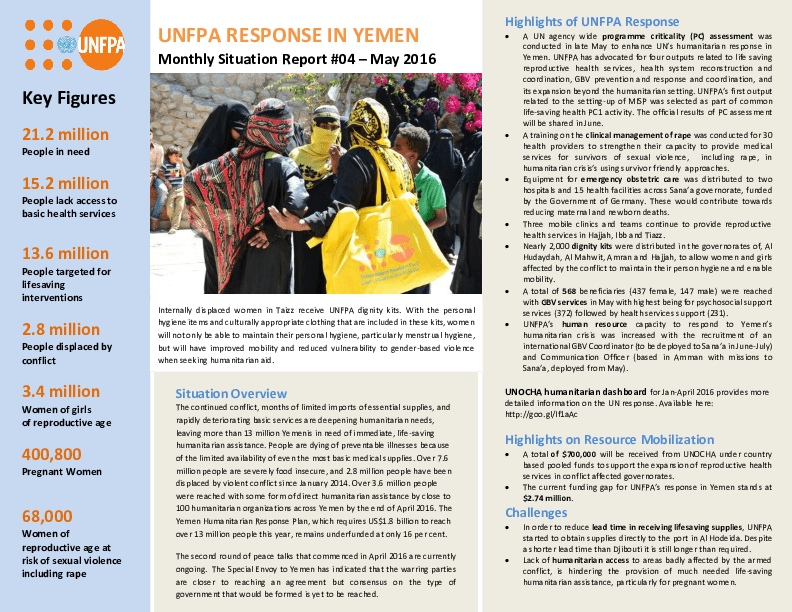Highlights of the UNFPA response
A UN-wide programme criticality (PC) assessment was conducted in late May to enhance the UN’s humanitarian response in Yemen. UNFPA has advocated for four outputs related to life-saving reproductive health services, health system reconstruction and coordination, gender-based violence (GBV) prevention and response and expanding beyond the humanitarian setting. UNFPA’s first output related to the setting-up of MISP was selected as part of common life-saving health PC1 activity. The official results of PC assessment will be shared in June.
A training on the clinical management of rape was conducted for 30 health providers to strengthen their capacity to provide medical services for survivors of sexual violence in humanitarian crises using survivor friendly approaches.
Equipment for emergency obstetric care was distributed to two hospitals and 15 health facilities across the Sana’a governorate, with funding from the government of Germany.
Three mobile clinics and teams continue to provide reproductive health services in Hajjah, Ibb and Taizz.
Nearly 2,000 dignity kits were distributed in the governorates of Al Hudaydah, Al Mahwit, Amran and Hajjah to allow women and girls affected by the conflict to maintain their personal hygiene and enable mobility.
A total of 568 beneficiaries (437 female, 147 male) were reached with GBV services in May, with the largest number being for psychosocial support services (372), followed by health services support (231).
UNFPA’s human resource capacity to respond to Yemen’s humanitarian crisis was increased with the recruitment of an international GBV Coordinator (to be deployed to Sana’a in June-July) and a Communications Officer (based in Amman with missions to Sana’a, deployed from May).
